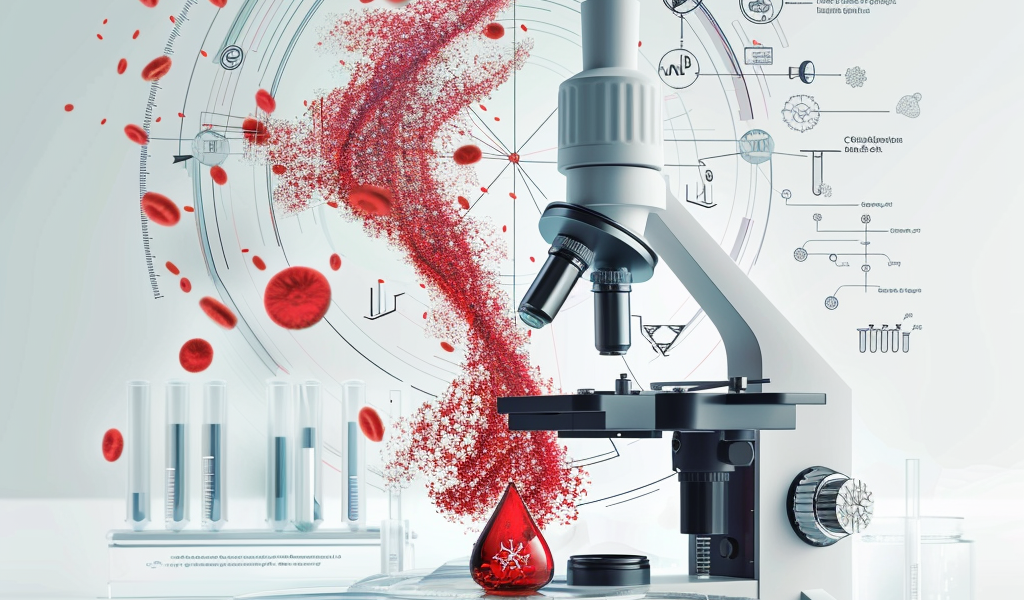Recent advancements in medical research have revealed that a simple drop of blood can hold the key to predicting the risk of developing over 60 different diseases. This groundbreaking study, a collaborative effort involving experts from the Berlin Institute of Health at Charité (BIH), Queen Mary University of London, University College London, University of Cambridge, and the pharmaceutical giant GlaxoSmithKline (GSK), was published in the prestigious journal Nature Medicine.
The research highlights the significance of protein ‘signatures’—specific combinations of 5 to 20 proteins—that can serve as reliable indicators of various health risks. Among the diseases identified through this innovative approach are multiple myeloma, non-Hodgkin’s lymphoma, motor neuron disease, pulmonary fibrosis, and dilated cardiomyopathy.
Utilizing data from the UK Biobank PharmaProteomics (UKB-PPP) project, which stands as the largest proteomics study to date, researchers analyzed around 3,000 plasma proteins derived from over 40,000 blood samples. These samples were linked to disease diagnoses recorded in participants’ electronic health records, allowing for a comprehensive analysis of the relationship between blood proteins and disease risk.
Employing advanced analytical techniques, the research team successfully pinpointed the most relevant proteins for predicting specific diseases. Remarkably, the predictive accuracy of these protein-based models surpassed that of traditional models that rely on standard clinical metrics, such as blood counts, cholesterol levels, kidney function tests, and diabetes screenings.
This pivotal research opens new avenues for timely diagnoses and early disease detection, particularly for conditions that currently require extensive time and resources to diagnose. The implications of these findings are profound, suggesting that many diseases, including rare ones, could be identified much earlier than is currently possible.
According to Prof. Claudia Langenberg, the lead author of the study and head of the Computational Medicine group at BIH, the ability to measure proteins in the blood is already a standard practice in clinical settings. For instance, troponin levels are routinely measured to diagnose heart attacks. Prof. Langenberg emphasizes the importance of this research, stating that it represents a significant advancement in identifying new potential markers for screening and diagnosis from the vast array of proteins present in human blood.
Looking ahead, the next crucial step involves validating these protein signatures across diverse populations, including various ethnic groups, to ensure their effectiveness and reliability in a broader context. The research team is particularly focused on developing tests that can accurately measure disease-relevant proteins using assays that meet clinical standards and remain affordable for widespread use.
Dr. Julia Carrasco Zanini Sanchez, the first author of the study and a former research student at GSK and the University of Cambridge, now a postdoctoral researcher, highlights the transformative potential of this research. By harnessing the power of proteomics, the medical community can enhance its ability to predict and prevent diseases, ultimately leading to improved patient outcomes.
This innovative approach to disease prediction not only underscores the importance of protein analysis in understanding health risks but also paves the way for future advancements in personalized medicine. As researchers continue to explore the intricacies of human proteins, the hope is that these findings will contribute to a new era of proactive healthcare, where early detection and prevention become the norm.
In summary, the collaborative study showcases a remarkable leap forward in the field of proteomics, offering promising insights into the early detection of numerous diseases through the simple analysis of blood proteins. As the research progresses, the potential for developing effective screening tools and diagnostic tests that meet clinical standards becomes increasingly tangible, heralding a new chapter in healthcare innovation.





